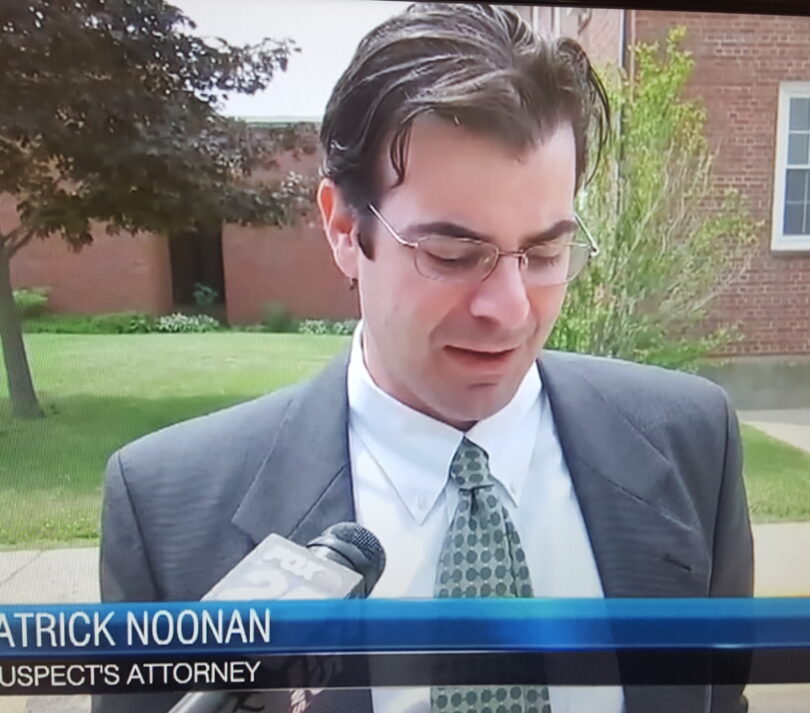Sexually Transmitted Diseases (STDs)
STDs among nursing home residents can be a sign of sexual abuse. Sexual contact that is forced, tricked, threatened, or otherwise coerced upon an elder, including anyone who is unable to grant consent may be considered sexual abuse.
When you think of sexually transmitted diseases (STDs) you may not think of the elderly, but a survey published in the New England Journal of Medicine reported that 53 percent of people over 65 say they are sexually active, and a quarter of those over 75 say they still have sex. Additionally, between 2015 and 2016, the U.S. population age 45 and over experienced a 20% jump in the number of reported cases of STDS — a higher rate of increase than in younger age groups.
The Centers for Disease Control and Prevention (CDC) reports significant increases in three STDs between 2010 and 2014 among adults 65 and over:
- Chlamydia infections increased by about 52 percent
- Syphilis infections rose by about 65 percent
- Gonorrhea cases increased by more than 90 percent
STDs can be very serious and are not always treatable with a simple course of antibiotics — in fact, 27 percent of new AIDS diagnoses in the US in 2013 were among people age 50 or older. Hepatitis A, B, and C are STD viruses that destroy the liver.
The elderly are particularly vulnerable to both neglect and abuse, especially if they have suffered any form of diminished mental capacity. They may become easily confused about who is abusing them, or manipulated into thinking it was their own fault, or even forget that the abuse has taken place. If your loved one has contracted an STD, it is important that you get all the facts and not just assume what the nursing home tells you is the entire story. Our lawyers can help you discover the facts and hold negligent or abusive caregivers accountable for their actions.
How Residents Can Contract STDs in Nursing Homes
In the adult community at large, consenting adults have the right to pursue their own physical interests; however, nursing homes have traditionally frowned upon residents having sexual relationships for a variety of reasons. Even when a nursing home has a no-sex policy, that does not mean residents can’t find ways to be alone unsupervised, or that residents are safe from sexual abuse. Although some nursing home facilities have begun adopting sex-allowed policies, even those facilities that do permit private interactions among consenting residents still have a duty to protect all residents from sexual abuse and unwanted advances.
Unfortunately, nursing home residents are vulnerable to sexual assault by staff members, other residents, and even visitors coming and going. Nursing home residents who suffer from dementia or Alzheimer’s may lack the mental capacity to even understand consent. The following are some of the reasons that nursing home residents may contract an STD while in a nursing home or long-term care facility:
- The nursing home failed to hire only people with no legal history of abusing, neglecting or mistreating residents or report and investigate any acts or reports of abuse, neglect or mistreatment of residents.
- The nursing home failed to have a program that investigates, controls and keeps STDs and other infection from spreading.
- Three was insufficient supervision due to understaffing, improperly trained staff, or inattentive staff;
- Lack of proper security;
- Failure to maintain proper care and hygiene for residents;
- Failure to notice early signs of abuse such as bruising, incontinence, abrasions, depression, refusing care or to eat;
- Failure to have policies and procedures in place for dealing with elopement and wandering.
STDs and Other Signs of Sexual Abuse
Bruises around the breasts or genital area and unexplained sexually transmitted diseases are the most common physical signs of sexual abuse of the elderly. Unlike with neglect, or even physical abuse, people who are sexually abused often feel ashamed and may not tell someone about the abuse. Vaginitis (BV, yeast infections, etc.) can be bacterial, viral, or caused by parasitic infections and may also be a possible sign of nursing home abuse or neglect.
The elderly are particularly vulnerable to both neglect and abuse, especially if they have suffered any form of diminished mental capacity (i.e., dementia.) They may become easily confused about who is abusing them, or manipulated into thinking it was their own fault, or even forget that the abuse has taken place.
You may not see physical evidence (i.e., bruises of the genitalia or anus) that are hidden by clothing, however, most victims of sexual assaults or abuse will show some other signs such as crying, depression, shutting down, or may even become hostile or angry. Some patients may become so depressed they will no longer engage in social activities or even stop eating. It is important to take any sudden change in mood, temperament, or behavior as a warning sign that something is wrong.
It is important to note that both male and female nursing home residents can contract STDs from either consensual sexual relationships, or from abuse.
Types of STDs That Can Spread in Nursing Homes
The following chart highlights various types of STDs including bacterial, viral, and parastic STDs.(1)
| Bacterial STDs | Viral STDs | Parasitic STDs |
| Chancroid – Caused by Haemophilus ducreyi bacteria It is almost always spread through sexual contact. Uncircumcised men are at much higher risk than circumcised men for getting chancroid from an infected partner. | Cytomegalovirus – An extremely common herpes-type virus, CMV infects more than half of all adults in the US by the age of 40. | Intestinal Parasites – Intestinal parasites are transmitted by contaminated food and water and during nonsexual, intimate contact. They may also be transmitted sexually. |
| Chlamydia – Chlamydia is a disease caused by the bacteria Chlamydia trachomatis. It is most commonly sexually transmitted. Chlamydia can infect the penis, vagina, cervix, anus, urethra, eye, or throat. | Genital Warts / Human Papillomavirus (HPV) – HPV can cause cervical and other cancers including cancer of the vulva, vagina, penis, or anus, back of the throat, the base of the tongue and tonsils (called oropharyngeal cancer). | Pubic Lice – Pubic lice infestation is caused by Phthiriasis pubis, commonly referred to as crabs. They can be easily transmitted during sexual or other intimate contact. |
| Gonorrhea (‘The Clap’) – Gonorrhea is caused by the bacteria Neisseria gonorrhoeae. The infection can be spread by any type of sexual contact with the mouth, vagina, penis, or anus. | Hepatitis (A, B, & C) – Hepatitis A, B, and C are viruses that destroy the liver. Hepatitis B is the form of hepatitis most commonly spread through sexual activity. | Scabies – Scabies is an easily spread skin disease caused by a very small species of mite. Scabies is spread by skin-to-skin contact with another person who has scabies. |
| Lymphogranuloma Venereum (LGV) – LGV is a chronic infection of the lymphatic system caused by three different types of the bacterium Chlamydia trachomatis. The bacteria spreads through sexual contact. The infection is not caused by the same bacteria that causes genital chlamydia. | Herpes (HSV1 & HSV2) – About 1 in 5 people in the US over age 12 is infected with HSV2 – the strain of the herpes virus that most commonly causes genital herpes, although, most are unaware they have it. | Trichomoniasis – Trichomoniasis is a sexually transmitted infection (STI) caused by the parasite Trichomonas vaginalis. Transmission includes penis-to-vagina, intercourse, or vulva-to-vulva contact. The parasite cannot survive in the mouth or rectum. |
| Mycoplasma Genitalium – This bacterium can infect the urethra, cervix, throat and anus. Mycoplasma genitalium is often associated with bacterial vaginosis (BV) and pelvic inflammatory disease (PID) in women, and is a common cause of non-gonococcal urethritis in men. It is spread through vaginal, anal, oral sex, adult toys, as well as hands and fingers if they have been in contact with an infected person’s genitals or anus. | HIV (AIDS) – Human immunodeficiency virus (HIV) is a type of virus called a retrovirus that changes a cell’s DNA. Acquired immunodeficiency syndrom (AIDS) is an acquired syndrome, or a group of symptoms, that is caused by infection with HIV. | [N/A] |
| Nongonococcal Urethritis (NGU) – NGU (Nongonococcal Urethritis) is an infection of the urethra caused by pathogens (germs) other than gonorrhea. Pathogens that can cause NGU include but are not limited to: Chlamydia (most common), Herpes simplex virus (rare), & Mycoplasma genitalium. | Mononucleosis (‘Mono’) – Mononucleosis is caused by the Epstein-Barr virus (EBV) and is a member of the herpes virus family and one of the most common human viruses. | [N/A] |
| Pelvic Inflammatory Disease (PID) – Pelvic Inflammatory Disease (PID) occurs when bacteria moves from the vagina or cervix into the uterus, fallopian tubes, ovaries, or pelvis. Most cases of PID are due to the bacteria that causes chlamydia and gonorrhea. | [N/A] | [N/A] |
| Syphilis – Syphilis is a sexually transmitted infection (STI) caused by the bacterium Treponema pallidum. Syphilis is passed from person to person through direct contact with a syphilis sore through vaginal, anal, or oral sex. | [N/A] | [N/A] |
Table Sources: Information for the STD chart above was compiled and edited for content from The STD Project, STD List by Category and BeforePlay.org, Avoid STDs, not the conversation.
Experienced Massachusetts Nursing Home Neglect and Elder Abuse Attorneys
The elderly are particularly vulnerable to both neglect and abuse, especially if they have suffered any form of diminished mental capacity. They may become easily confused about who is abusing them, or manipulated into thinking it was their own fault, or even forget that the abuse has taken place. If your loved one has contracted an STD, it is important that you get all the facts and not just assume what the nursing home tells you is the entire story. Our lawyers can help you discover the facts and hold negligent or abusive caregivers accountable for their actions.
We offer a free, no-obligation legal consultation to help you understand your rights and the value of your case. Our personal injury law firm takes cases involving elder abuse and neglect. We offer legal service to clients in Massachusetts, Rhode Island and New Hampshire.
Massachusetts Elder Abuse and Nursing Home Neglect Personal Injury Attorneys, Free Consultation. No fee if no recovery.
Sources:
- (1) Information for the STD chart above was compiled and edited for content from The STD Project, STD List by Category and BeforePlay.org, Avoid STDs, not the conversation.
- Berkley University of California, Wellness: Seniors, Sex, and STDs by Paula Derrow
- New England Journal of Medicine, A Study of Sexuality and Health Among Older Adults in the United States. August 23. 2007
- AgingCare.com, Sex in Retirement Communities—Who Decides What’s Proper? by Carol Bradley Bursack



